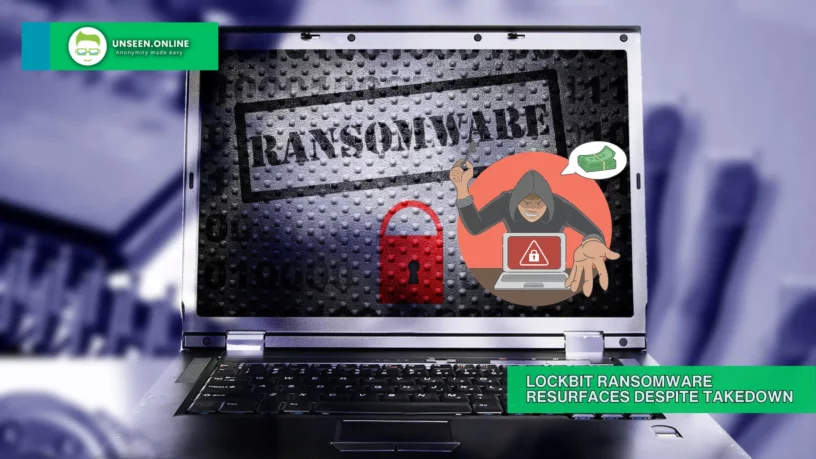The notorious LockBit ransomware group has made a resurgence, defying the recent international law enforcement takedown and multiple arrests. Despite the seizure of over 1,000 decryption keys by authorities, the group claims to still possess thousands more, downplaying the success of the takedown.
The resilience of LockBit highlights the evolving nature of cybercrime and the challenges faced by law enforcement in combating it. The group’s ability to quickly rebuild its infrastructure and maintain access to decryption keys underscores the intricate and sophisticated methods employed by cybercriminals.
Security experts and law enforcement agencies remain vigilant, aware that LockBit poses a significant threat. They continue to emphasize the importance of proactive cybersecurity measures, such as regular software updates, strong passwords, and employee education, to mitigate the risks associated with ransomware attacks.
The UK’s National Crime Agency (NCA) plays a crucial role in disrupting LockBit’s operations. With access to intelligence, the NCA works to identify and target the group’s infrastructure, collaborators, and financial networks. This ongoing effort aims to dismantle LockBit’s operations and bring its members to justice.
The LockBit resurgence serves as a reminder of the constant battle between law enforcement and cybercriminals. While international takedowns and arrests can disrupt criminal networks, cybercriminals often find ways to adapt and persist. Therefore, a multi-faceted approach, encompassing law enforcement efforts, public awareness, and proactive cybersecurity measures, is essential to combat ransomware and protect individuals and organizations from its devastating impact.







